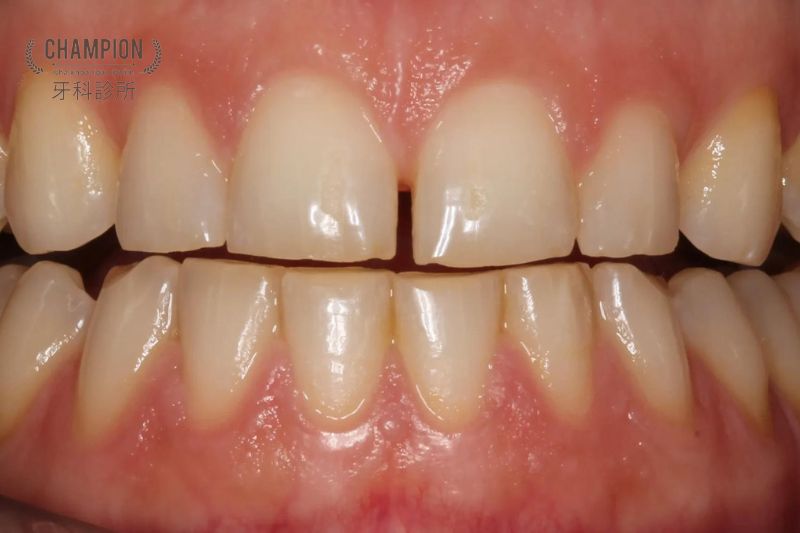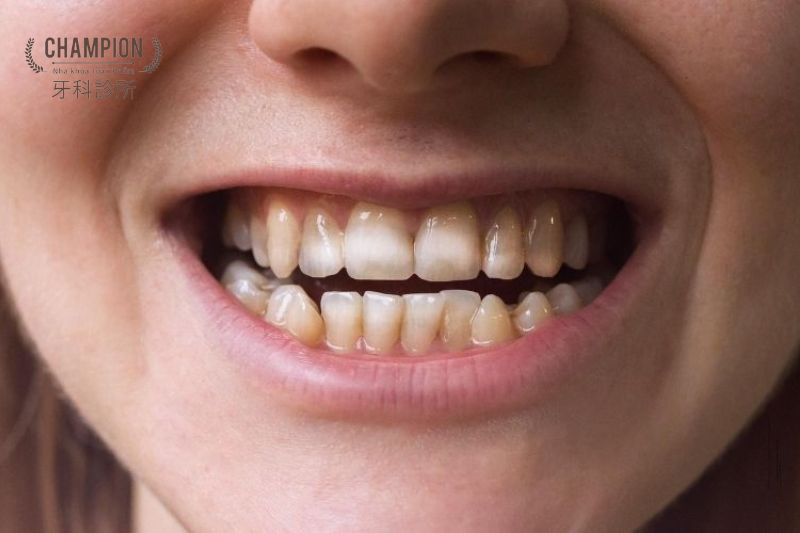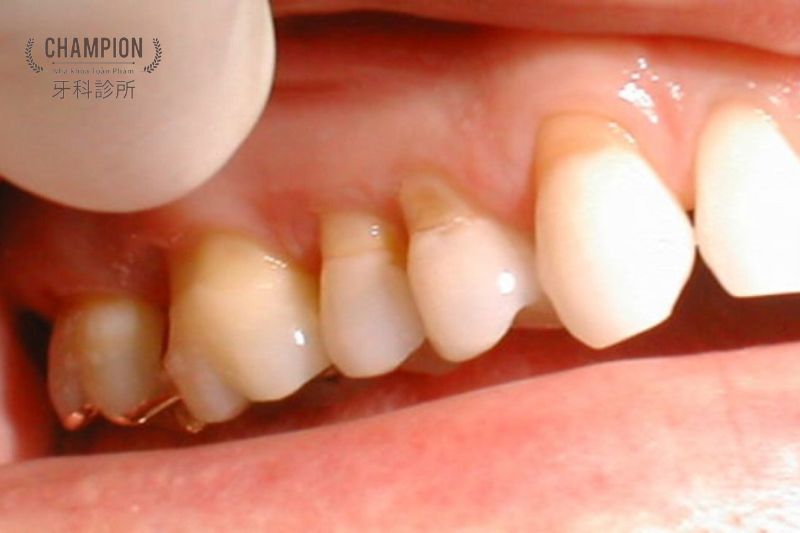Tooth erosion is the condition where tooth enamel is lost due to external factors, making the teeth thin and weaker. It is a common dental issue that can affect people of all ages, leading to serious consequences if not treated promptly. So, is tooth erosion dangerous? How can it be prevented and treated? Check out the article below from Champion Dental Clinic for more information!
Is tooth erosion dangerous?
Tooth erosion is a significant health concern that can pose various risks to the oral and overall health. Here are some substantial risks associated with tooth erosion:
- Causes pain and discomfort: Eroded teeth often come with sensitivity and pain when exposed to hot, cold, or sweet foods. This increases the risk of a diminished quality of daily life.
- Increases the risk of cavities: When tooth enamel erodes, the dentin layer becomes exposed, making teeth more sensitive to temperature and acidic foods. The dentin layer is also more susceptible to bacterial attacks, leading to cavities.
- Affects aesthetics: Eroded teeth may become shorter, rough, and discolored, impacting your smile and self-confidence.
- Causes gum damage and inflammation: Tooth erosion raises the risk of gum inflammation and bleeding, contributing to various gum issues and an increased likelihood of gum diseases.
- Risk of tooth breakage: Eroded teeth are more prone to breakage, especially when chewing hard foods.
- Disruption of temporomandibular joint function: Tooth erosion can affect the temporomandibular joint, leading to symptoms such as jaw pain, fatigue, and clicking sounds during chewing.

Causes of Tooth Erosion
Tooth erosion is the condition where the outermost layer of tooth enamel is lost, causing the teeth to become thin and weaker. It is a common dental issue that can affect individuals of all ages, attributed to various causes. Here are some primary causes of tooth erosion:
Dietary habits
- Foods and beverages with high acidity, such as sodas, citrus fruits, coffee, and wine, can gradually erode tooth enamel over time.
- Frequent snacking, especially on sugary and starchy foods, creates conditions for oral bacteria to produce acid, leading to tooth erosion.
Oral hygiene habits
- Incorrect tooth brushing techniques, such as brushing too hard or using a stiff toothbrush, can contribute to enamel erosion.
- Inadequate or improper use of dental floss to remove leftover food particles and plaque creates an environment for bacterial growth and enamel attack.
Other factors
- Gastroesophageal reflux disease (GERD): Acid reflux from the stomach into the esophagus and mouth can contribute to tooth erosion.
- Dry mouth syndrome: Saliva helps neutralize mouth acidity and protects teeth from erosion. Reduced saliva due to dry mouth makes teeth more susceptible to erosion.
- Teeth grinding: Grinding teeth due to habits like bruxism or ill-fitting dental appliances can cause enamel erosion.
- Genetic factors: Some individuals may inherit weaker tooth enamel, making them more prone to tooth erosion.

>> See more: Reasons, symptoms, and treatment of tooth erosion
Addressing Tooth Erosion
Tooth erosion, if left untreated, can lead to various oral health issues. The approach to addressing erosion depends on its severity:
Mild tooth erosion
- Use fluoride-containing toothpaste to help remineralize tooth enamel and protect against acid damage.
- Topical fluoride gel prescribed by a dentist can strengthen tooth enamel. Follow the dentist's instructions for use.
Moderate tooth erosion
- Dental bonding: Using erosion-resistant materials to protect and restore lost enamel, hindering further erosion.
- Dental veneers: Thin porcelain shells applied to the front of teeth for both aesthetic improvement and enhanced protection.
Severe tooth erosion
Dental implants: In cases of extensive erosion, dental implants involve grafting an artificial tooth into the jawbone, providing a stable and natural-looking solution.

Preventing Tooth Erosion
To minimize the risk of tooth erosion, adopt these preventive measures:
- Use a soft toothbrush to avoid enamel damage. Choose fluoride toothpaste for added protection.
- Brush your teeth in the morning upon waking and before bedtime to remove plaque and acid accumulated overnight.
- Avoid aggressive tooth brushing, employing gentle, even strokes across all tooth surfaces.
- Use fluoride mouthwash to provide an extra layer of protection against enamel erosion.
- Regular dental check-ups are crucial for early detection and prevention of erosion-related issues.
In conclusion, tooth erosion is a common concern, but with simple and effective measures, you can reduce the risk and safeguard your oral health. For personalized advice or treatment, schedule regular visits with the dentists at Champion Dental Clinic.
Vietnamese & English: (028) 5411-2295
中文: (028) 5411-2297 172 Nguyen Luong Bang, Tan Phu Ward, District 7, Ho Chi Minh City.
Fanpage: Champion Dental Clinic 牙科診所
Zalo: Champion Dental Clinic
Youtube: Champion Dental Clinic 牙科診所
 Champion Dental Clinic
Champion Dental Clinic



